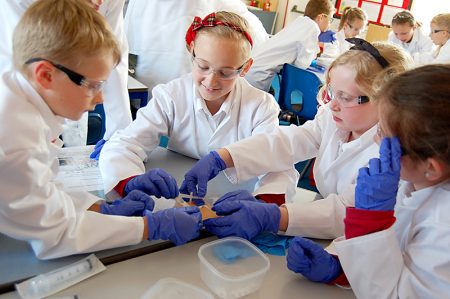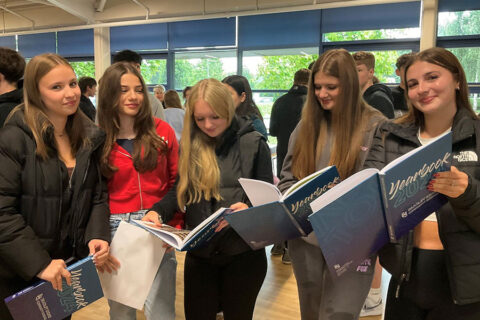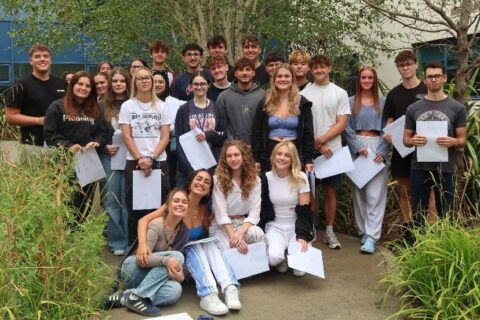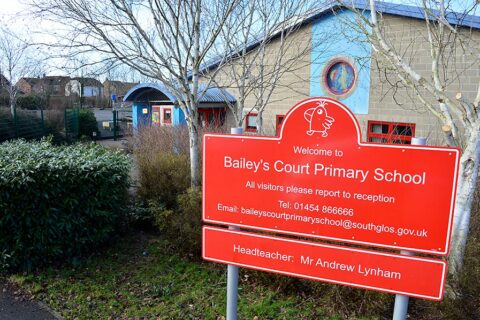Year 5 pupils at Baileys Court primary School have been taking part in a hands-on science programme in which they have constructed their own miniature fuel cells to generate electricity from waste.
Organised in conjunction with staff from the University of the West of England, with the support of a grant from the Royal Society, the 12-week project is intended to encourage the pupils to think about the challenges posed by the depletion of the earth’s resources and explore more sustainable ways of producing power.
The focus of the project is on microbial fuel cells (MFCs); a technology employing bacteria to produce electricity. Working in groups, the children have constructed simple MFCs from components manufactured at the university.
They have been encouraged to think about the local environment and where bacteria may live (e.g. pond, puddle, food, soil, compost) and have inoculated their MFCs using bacteria from their location of choice.
With their MFCs built, pupils then carried out experiments to vary the type/amount of food given to the cells and monitored electrical output in order to observe the correlation between power and microbial metabolism.
As we went to press, we heard that pupils had connected some of their fuel cells into an electrical circuit and successfully lit up a light-emitting diode (LED)!
At the end of June, the Year 5 pupils will go on a day trip to the university to see examples of larger MFCs and the applications they can be used for.
This article originally appeared in the June 2015 edition of the Bradley Stoke Journal news magazine, delivered FREE, EVERY MONTH, to 9,500 homes in Bradley Stoke, Little Stoke and Stoke Lodge. Phone 01454 300 400 to enquire about advertising or leaflet insertion.





